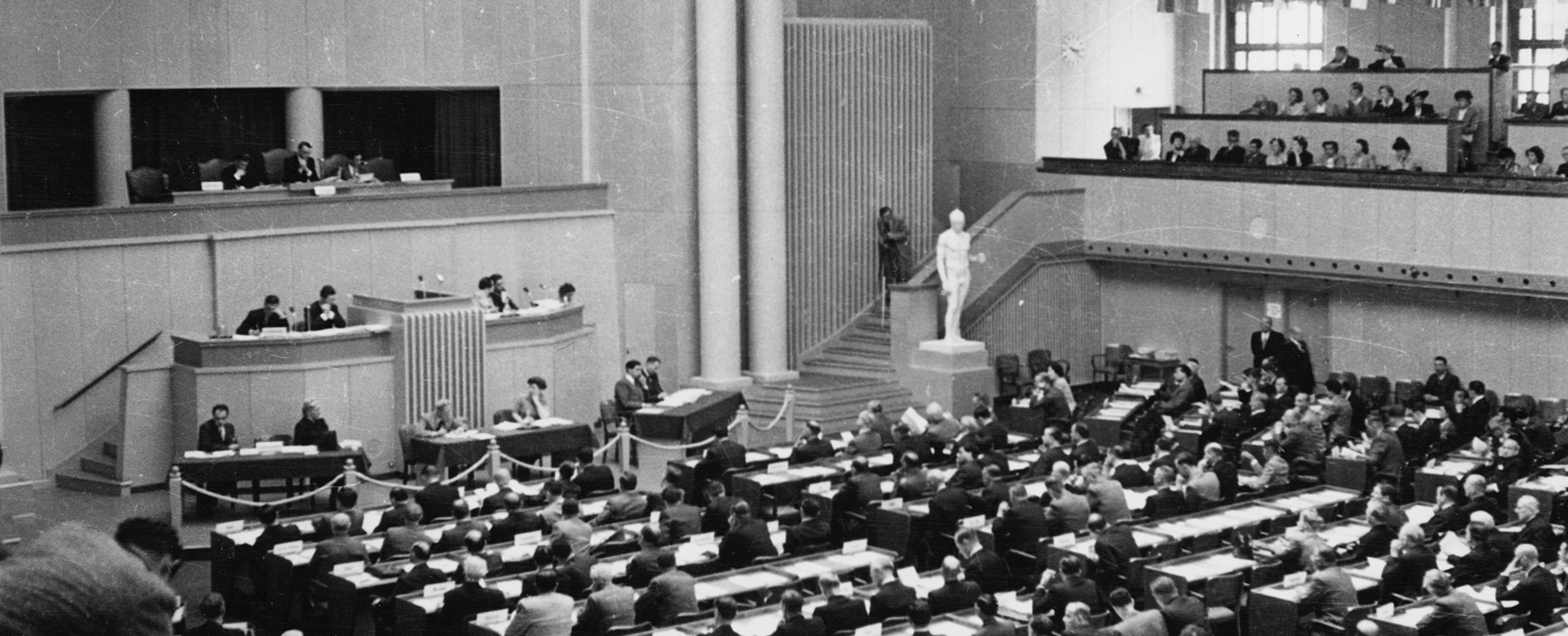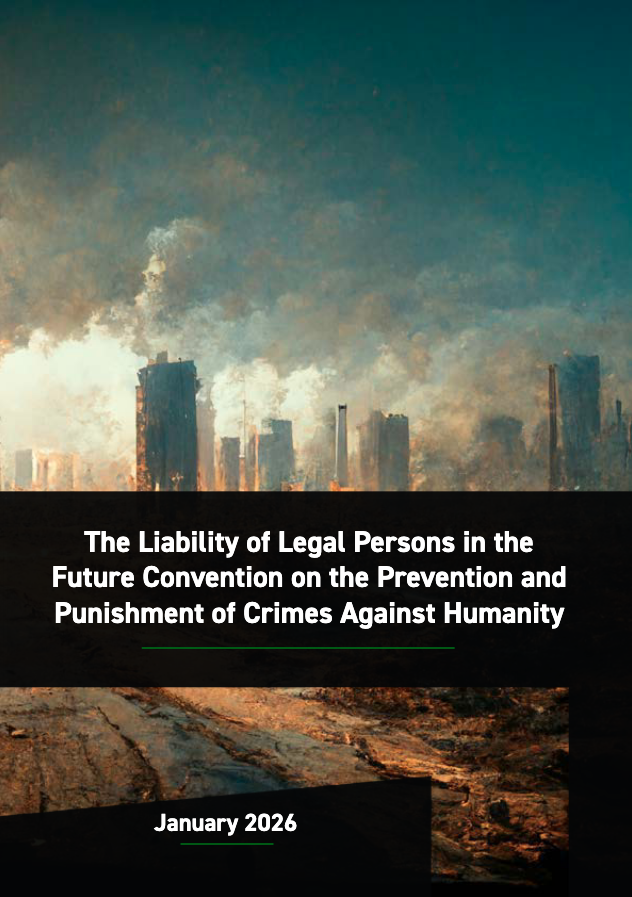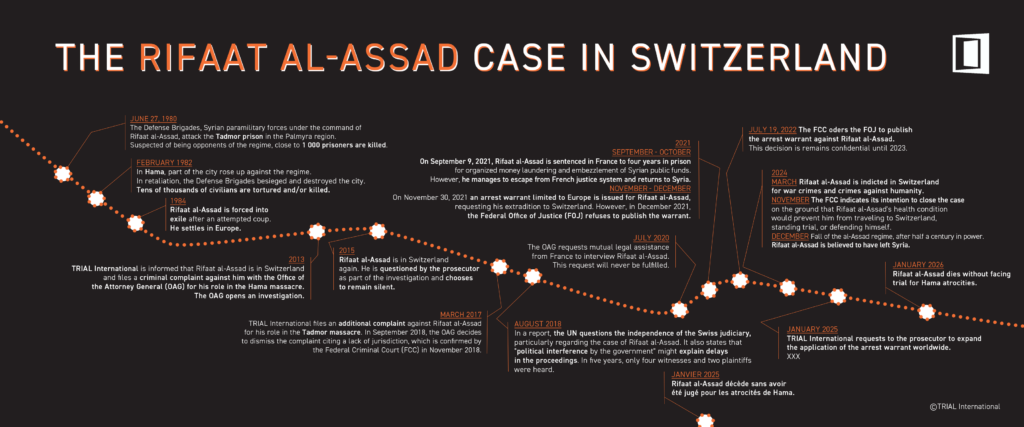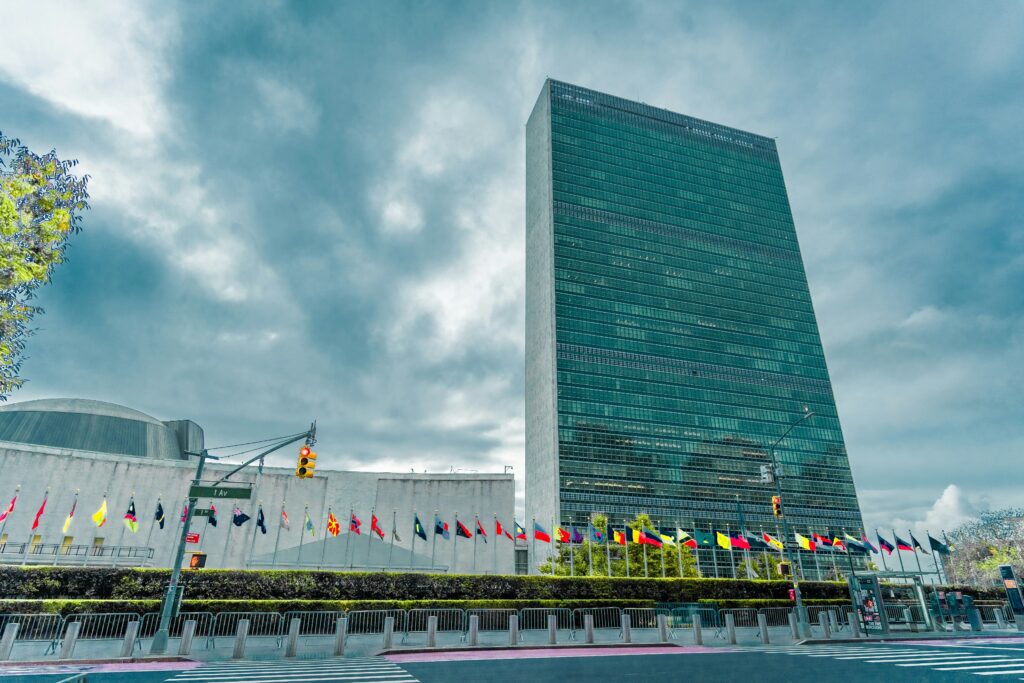The Geneva Conventions, needed now more than ever
An op-ed by Philip Grant, Executive director at TRIAL International
On 12 August 2019 we celebrate the 70thanniversary of the Geneva Conventions. Philip Grant, founder and Executive Director at TRIAL International, explains why these texts remain relevant and valuable today.

The Geneva Conventions are a set of four treaties, expanded in 1977 by two important additional protocols. They aim to reduce and control the brutality of warfare. They protect those individuals who are not involved in the fight (such as civilians) or have stopped fighting (such as the wounded, the sick or the prisoners of war). To this day, they remain among the most widely ratified treaties in the world.
I have a particular attachment to these Conventions, whose story is closely linked to that of my home city Geneva. TRIAL was founded to ensure Switzerland upheld this humanitarian law heritage, not just as a host for institutions but also by making sure it would prosecute and punish suspects residing in or entering its territory.
As part of its litigation efforts, TRIAL International regularly invokes the Geneva Conventions. 70 years after their adoption, they remain a crucial part of the human rights defenders’ arsenal. But the worth of these texts is not just legal. They contain two critical lessons that remain relevant today.
Law as a living matter
The first lesson is historical. Because they were drafted in a widely different context from ours, the Conventions regularly come under attack for being obsolete. Such criticism was particularly virulent after 9/11 and the subsequent rise of non-state actors on the international scene.
But we must remember that the law is a living, ever-evolving subject, destined to adapt to new situations and challenges. This conviction lies at the heart of TRIAL’s mandate, which seeks to open up innovative ways to justice for victims of atrocities. It is up to each practitioner and activist to push back the boundaries of the law in their everyday work. In other words, the texts will only ever go as far as we take them.
With this rationale in mind, we are convinced that the Geneva Conventions are still very much relevant today, and will remain so for a long time.
Inalienable human dignity
The second lesson is moral, almost philosophical. The Conventions are based on the recognition of inalienable human dignity, even in the worst settings and especially to the most vulnerable. At TRIAL, we believe that fighting for justice is one way of upholding this dignity right where it has been trampled.
The awareness of one’s fundamental worth is both a trigger and a consequence of our beneficiary’s long quest for justice. From powerless victims, they become rights-holders. Empowered by the law, they become agents in their own lives again. That’s why their path to justice is often also one of closure and reconstruction.
On this anniversary, the Geneva Conventions actually teach us a third point. They originated from the vision of a single and exceptional individual, Henry Dunant, who believed in his own ability to make a change. It took decades for this vision to become a reality, but when it did it changed the international legal order forever. This lesson of perseverance inspires us today and fuels our vision for the future we must build together.





